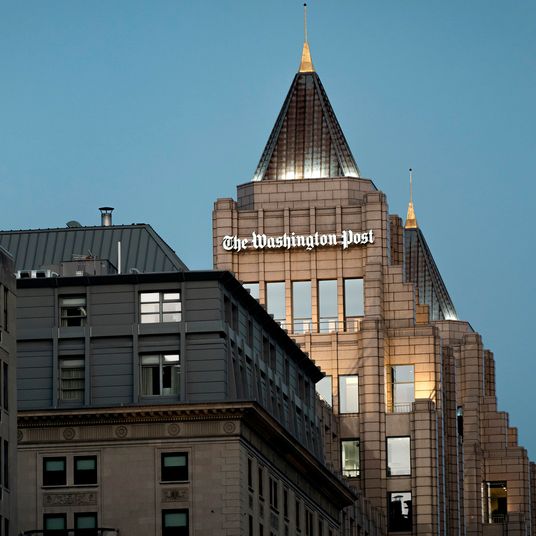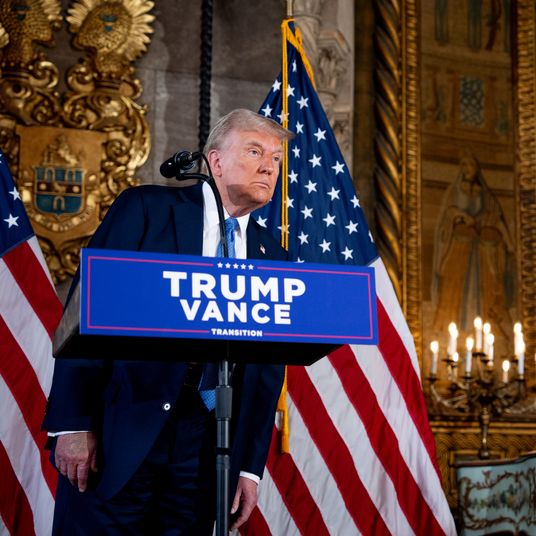
Historian and former John McCain adviser Niall Ferguson is taking his turn today as the Newsweek cover story punching bag for his latest, “Why We Need a New President.” In the article, Ferguson attempts a full survey of Barack Obama’s first term, hoping to highlight all of the promises the president has broken with an array of figures and charts. Unfortunately for Ferguson, his evidence doesn’t stand up, and political and economics writers, led by Paul Krugman, have been more than happy taking turns knocking it all down.
On his blog this morning, Krugman took a break from his hiking vacation to call out the “Unethical Commentary”:
There are multiple errors and misrepresentations in Niall Ferguson’s cover story in Newsweek — I guess they don’t do fact-checking — but this is the one that jumped out at me. Ferguson says:
“The president pledged that health-care reform would not add a cent to the deficit. But the CBO and the Joint Committee on Taxation now estimate that the insurance-coverage provisions of the ACA will have a net cost of close to $1.2 trillion over the 2012–22 period.”
Readers are no doubt meant to interpret this as saying that CBO found that the Act will increase the deficit. But anyone who actually read, or even skimmed, the CBO report (pdf) knows that it found that the ACA would reduce, not increase, the deficit — because the insurance subsidies were fully paid for.
Ferguson came back with a quibbling rebuttal: “But I very deliberately said ‘the insurance coverage provisions of the ACA,’ not ‘the ACA.’ There is a big difference.” To which Joe Weisenthal of Business Insider scoffed, “So Ferguson’s response was: Well, the spending/insurance portion of the Affordable Care Act did increase the deficit, and I was only referring to the spending side. I wasn’t referring to the whole thing … Niall Ferguson’s defense is that he was being very obtuse and misleading.”
Economist Brad DeLong is even harsher with regards to the ACA claim:
Fire his ass. Fire his ass from Newsweek, and the Daily Beast. Convene a committee at Harvard to examine whether he has the moral character to teach at a university. There is a limit, somewhere. And Ferguson has gone beyond it.
And that’s just one minor point — it’s only the very beginning. Ferguson’s own Newsweek colleague Andrew Sullivan calls his “old and good friend” out for his “glaring omissions” and “sleight of hand.” Sullivan promises, “More to come. The piece is sadly so ridden with errors and elisions and non-sequiturs it will require a few more posts.”
At The Atlantic, and with the searing headline “As a Harvard Alum, I Apologize,” James Fallows writes, “A tenured professor of history at my undergraduate alma mater has written a cover story for Daily Beast/Newsweek that is so careless and unconvincing that I wonder how he will presume to sit in judgment of the next set of student papers he has to grade.”
Matthew Yglesias, meanwhile, addresses Ferguson’s point about the U.S. losing GDP ground to China, which comes complete with a graph: “Ferguson is implicitly making two points with this graphic and it’s difficult to know which of them is more absurd—the idea that Obama is responsible for rapid economic growth in China or the idea that if he were responsible that would be blameworthy.”
The Atlantic also has a full-blown fact-check of the article by Matthew O’Brien, who begins, “rather than make this straightforward case against the current administration, Ferguson delves into a fantasy world of incorrect and tendentious facts. He simply gets things wrong, again and again and again.” (A Newsweek spokesman confirmed to Politico, as Krugman suspected, that the magazine does not have a fact-checking department: “We, like other news organisations today, rely on our writers to submit factually accurate material.”)
Suffice it to say, as the pile-on continues, the online traffic for the article is probably insane, but in no way worth it. Is this just what’s become of the Tina Brown method? Since she took over as editor of the struggling newsweekly that combined with her Daily Beast, the magazine has faced repeated criticism for what certain corners of the Internet refer to as trolling. From Michelle Bachmann’s gaze to Zombie Princess Di, Gay Obama, and Wimpy Mitt Romney, Newsweek covers have grabbed attention (which does not necessarily translate to sales).
But the Brown brand of getting people chattering with eye-popping covers and counterintuitive takes isn’t the same as willingly distorting the truth. As Krugman writes, “We’re not talking about ideology or even economic analysis here — just a plain misrepresentation of the facts, with an august publication letting itself be used to misinform readers.” With the future of the print product already in doubt, cheap clicks at the expense of credibility just aren’t going to cut it.





























